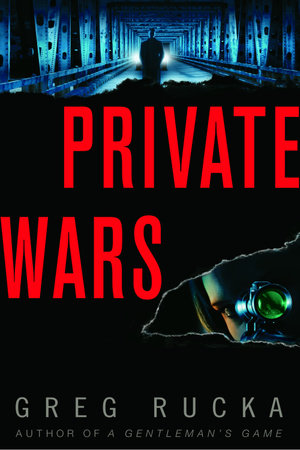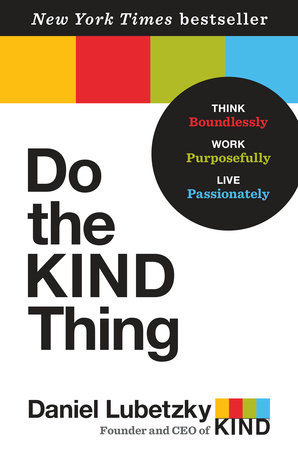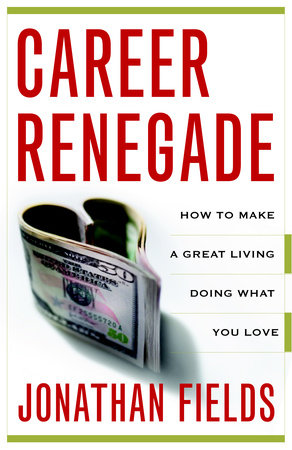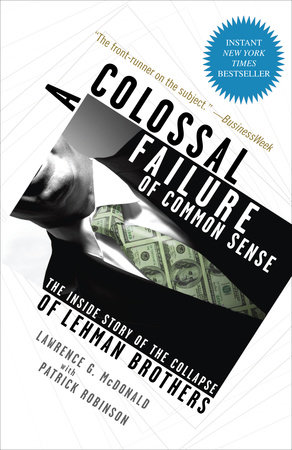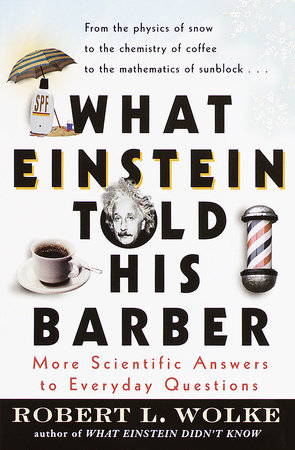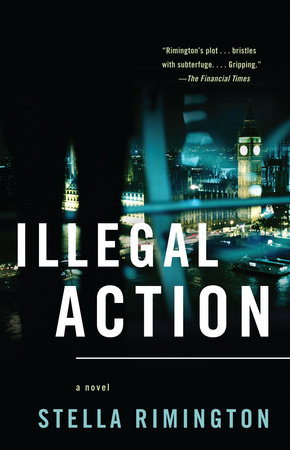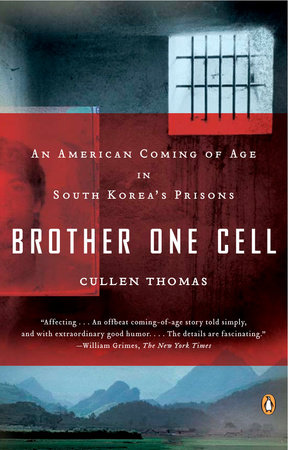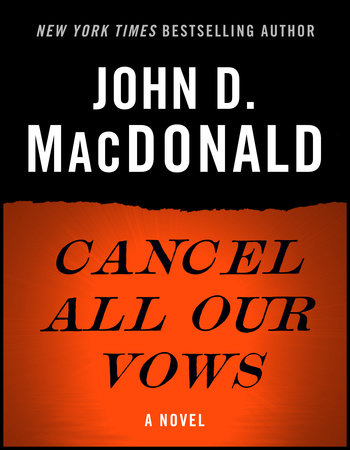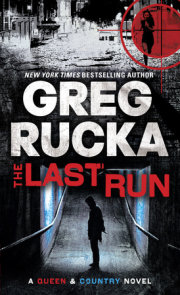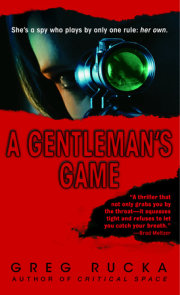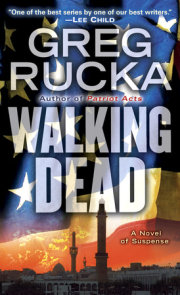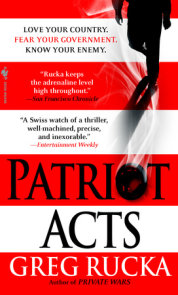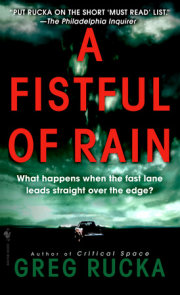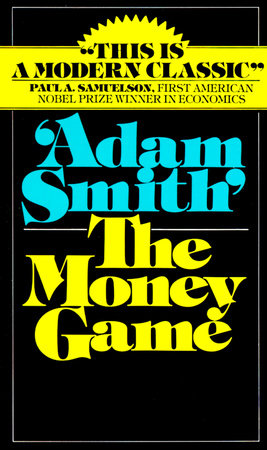Author Q&A
For readers who are new to your work, what is the Queen & Country series? And what are the differences and similarities between the graphic titles and the Queen & Country novels?
Queen & Country started life as an ongoing comic book series published by Oni Press. The series follows a woman, Tara Chace, who is a Special Operations Officer for the SIS, the British equivalent of the CIA. It’s set in the ‘real world,’ and deals with topical politics, and an honest look at the costs of espionage in the modern world.
In the main, the two ‘versions’ are identical, at least in feel. Novels allow for a deeper examination of issues, and more involved story, but the feel and the mood of the series remains the same. I view it all as a continuum of a sort–the Q&C comics and the Q&C novels are all part of the same, larger, story. Each of the novels can be read alone, of course, but at the heart there’s a larger body of work to support the stories.
There are several villains in Private Wars and you do a great job of keeping these characters believable. How do you create these menacing, violent characters without going overboard?
Mostly by not creating anyone out of whole cloth, but rather by looking around at the world, and at the truly evil things that are happening every day, and then asking how it is that one person can do such violence to another. In Private Wars, it was the issue of torture that got me. I read a lot of reports on the use of torture in Uzbekistan, how its employed by the government, and I found myself wondering what kind of person would commit such acts. Where did they come from? How did they get that way?
So there’s that, and there’s another thing, too, which is that, no matter how vile the Bad Guys are, I try to remember that they are, on some level, still human…as much as we might wish it were otherwise. It’s that balance, I think, that makes the characters real.
Much of Private Wars is set in Uzbekistan, which provides an interesting backdrop for the novel. It is one of the areas of the world which gets few headlines, yet it is of utmost strategic importance for several countries, including the United States. How did you come to choose Uzbekistan as a setting for Private Wars? Have you traveled to the locations featured in the novel?
Private Wars actually started with a photograph I saw of the current Uzbeki president’s daughter, Gulnara Karimov. There’s not a whole lot of information out there about her, but what little I managed to read got the wheels spinning, and the novel spilled forth from there. She’s a fascinating character, and frankly, more than a little terrifying.
That, in turn, lead to more reading about Uzbekistan in general, and then to interviews, and then to more reading, and suddenly I was looking at a country that most people had never heard of, and yet was absolutely central to the current Global War on Terror. It was the perfect place to set the next Chace story.
Where I can, I take research trips wherever possible. In the case of Uzbekistan and Tashkent, it simply wasn’t an option, and for a variety of reasons. So I spent a lot of time in the library, and online, and talking to the people I could find who had first-hand knowledge of the country.
We were intrigued by the protection/sanctuary offered by the Pashtunwali as discussed in Private Wars. Is the Pashtunwali still in effect, or was this practice fictional?
No, it’s the real deal, and practiced even today. It’s certainly been one of the major contributing factors to the absolute failure of NATO and U.S. forces in finding bin Laden. Pashtunwali has been practiced in Central Asia–Afghanistan and the NWFP on the border with Pakistan, certainly—for centuries, even millennia. It’s a necessity to survival living in such a harsh and unforgiving environment, and it’s got a peculiar honor to it that, I think, is vexing to most Western thought. But the concept of hospitality that it embodies timeless, and inexorably biblical, as well. In the bible, Abraham was renowned for his own hospitality, and the protection and aid he offered to strangers in need.
Almost from the first page, Private Wars contains plot surprises. Alliances and mission end-goals are constantly in flux; some of them you can see coming early on, while others sneak up on you. Do you have these plotted our before you begin writing?
For the most part, yes, though there are always surprises in the writing, moments when the story turns, or a character speaks, or something happens in a way that I hadn’t foreseen. I live for those moments, because that’s when I know that the story has come truly to life, that it’s vibrant and moving. I have to work with a certain amount of structure at the start, but I find that the structure is actually very liberating, because it—somewhat paradoxically—allows the story to go wherever it may need to. If I know where I’m heading, I can take any number of routes to get there, so to speak.
We once again are impressed with your ability to flesh out your supporting characters, such as Lankford. Is there a possibility of seeing Lankford the focus of an upcoming novel?
Both Lankford and Poole will actually be figuring very prominently in the next Q&C Novel, which—God willing!—will be out in 2007. As I have it plotted right now–it’s fairly loose—both Minder Three and Minder Two (their SIS designated ‘codenames’) will have to move to the fore of the action in the next novel.
I don’t imagine actually writing a Q&C novel that doesn’t put Chace, and by extension, her boss, Paul Crocker, at the center of the action. But I definitely plan to use Lankford much more, both in the comics and in the upcoming novels.
With the ongoing war on terrorism, have you found it more difficult or easier to pick experts’ brains while conducting research for the Tara Chace novels?
Both. There are so many possibilities for stories given the state of the world today, and all one has to do is spend five minutes listening to, for instance, someone from the State Department, to come up with a dozen ideas. It’s the details that are murderous to pin down these days, because of the veil of secrecy, some of it warranted, that’s descended since 9/11. It used to be that, when I did research, I could expect answers to some 90% of my questions, roughly. These days, it’s closer to 40%, but there’s normally enough given that, with a little thought, I can puzzle out plausible pieces with which to fill in the blanks.
Your Queen & Country novels—A Genteleman’s Game and now Private Wars–are quite different from your Atticus Kodiak novels. How do you approach each of these series when you begin writing one of their novels? And do you have any future plans to perhaps bring them together?
As of now, there are no plans to bring Kodiak and Chace together in the same story, and I think that’s as it should be. They inhabit very different worlds; Chace lives deep in the gray areas, and very much in the shadows, and she’s comfortable–one might even argue that she’s happy–being there. Atticus is far more comfortable in the light, even if what he does and where his adventures take him is more often than not into darkness. And at the end of the day, perhaps it comes down to this—Chace’s morality, her sense of honor and ethic, is far more fluid than Atticus’. Atticus is a knight; Chace is a spy. They can follow similar stories, but they’re going to reach their goals in very different fashions…and with far different costs.
We have read that while the Queen & Country comic series remains ongoing, you do have an ending planned at some indeterminate point. Will that ending impact upon your Queen & Country series of novels?
It’s very fluid. I try to envision an end for every character I write about, just so I have some idea of where they are headed. Very rarely is that ending set in stone, however. Right now, I like Chace far too much to stop telling stories about her, and there are a lot more stories to tell!
What are your plans for future novels in the Queen & Country series?
The next one I have planned is a little different. Whereas in the first two books, the narrative split between Chace and her antagonists, the next one will have a narrower focus. I don’t want to give anything away yet, but as it’s planned now, something happens very early on in the novel to Chace that places her in great jeopardy, alone, and in grave danger. While she’s struggling to survive, we follow both her pursuers and her allies as each group tries to either capture her, or rescue her.
After that, I think Our Lady of the Endless Cigarettes and Bullets may be visiting the U.S., and potentially be discovering a new man in her life. One who will, perhaps, be even more than she can handle.
The author bio in Private Wars indicates your 2006 novel will be a return to your Atticus Kodiak series. Why have you decided to wait until now to continue with this series?
After Critical Space, I felt it was necessary to let Atticus take a rest. He was thoroughly put through the wringer in the last novel, and I wanted to let that sit for a while, to let him catch up, so to speak. The new book is set three years after the last, and it’s been three long years in the wilderness for Atticus, and that was something I felt I wouldn’t be able to conjure properly if I’d simply jumped right in to another Kodiak novel after Critical Space.
What writers, of any genre or media, have had the greatest influence upon your work? And what authors do you read primarily for pleasure?
I’m all across the board, these days. I love Lawrence Block’s work—each of his novels is a delight, and I learn so much from simply reading him, how he handles not just plot and narrative, but also language. I’ve become very passionate about both Lee Child and Michael Connelly, who, sadly, I’ve come to late. Most of my reading these days is in non-fiction, honestly, and mostly for research purposes, so I find I have little time to simply read for pleasure.
Of influences, oh, there are far too many to name and number. Hemingway, Crane, Chandler, Lehane, O’Brien, Ozick, Oates, the list goes on and on.
And for pure pleasure, it’s still Rex Stout’s Nero Wolfe novels. Honestly, very few things make me happier than reading about Archie and Nero.
